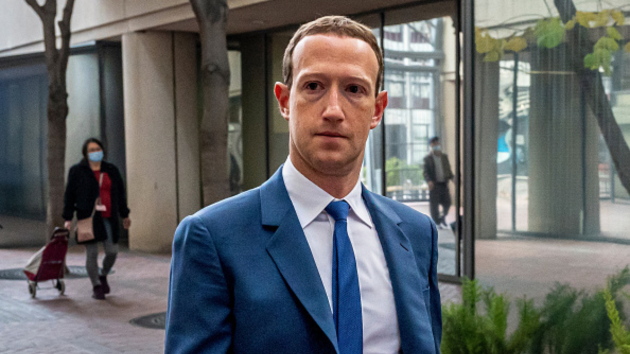Inflation cooled slightly in November, easing pressure on Fed
Written by ABC Audio ALL RIGHTS RESERVED on December 12, 2023
(WASHINGTON) — Consumer prices rose 3.1% in November compared to a year ago, cooling slightly from the previous month and indicating progress in the fight to reduce inflation, a report from the Bureau of Labor Statistics released on Tuesday showed.
The fresh data arrives a day before the Federal Reserve will decide on a potential escalation of its near-historic series of interest rate hikes.
Inflation has fallen significantly from a peak of about 9% last summer, but remains more than a percentage-point higher than the Fed’s target.
The cooldown in November was driven in part by falling gas prices, the BLS said. Over the past month, the average price of a gallon of gas has fallen by about 6%, AAA data shows.
However, an increase in housing costs largely offset the decline in gas prices, the BLS said.
Progress shown in the price-hike data lagged for a separate key metric: core inflation, which leaves out volatile food and energy prices.
Core inflation rose 4.0% in November compared to a year ago, remaining unchanged from the rate demonstrated over the previous month.
Since last year, the Fed has raised its benchmark interest rate at the fastest pace in more than two decades in an effort to slow prices increases.
That series of decisions has hiked interest payments for everything from credit card loans to mortgages, while at the same time consumers remain squeezed by the elevated prices.
The rate increases appear to have slowed some areas of the economy, putting the brakes on the housing market and discouraging businesses from major investments that would carry onerous borrowing costs.
The economy maintained robust employment growth last month but fell well short of the breakneck pace exhibited over the previous year, data from the Bureau of Labor Statistics on Friday showed.
Still, consumer spending has proven resilient. Black Friday sales did gangbuster business as the nation entered a holiday shopping season expected to test shoppers, who account for nearly three-quarters of U.S. economic activity.
Consumers spent a record $9.8 billion online on Black Friday, which amounted to a 7.5% increase over the year prior, according to Adobe Analytics data reviewed by ABC News.
Resilient holiday spending could provide additional fuel for the economy as observers hope for continued expansion but fear the downward pressure imposed by interest rate hikes.
Lately, the economy has rebuked such concerns. The gross domestic product grew at an annualized pace of 4.9% over three months ending in September, more than doubling growth of the previous quarter and easing worries about a possible recession, a report from the Bureau of Economic Analysis in October showed.
Taken together, mixed signals from the economy in recent months have complicated the Fed’s effort to bring down inflation while averting a recession, an outcome known as a “soft landing.”
In theory, the economy should eventually falter as it becomes more expensive for businesses and consumers to borrow. However, the economy has so far resisted an overall slowdown.
Speaking at a press conference in Washington, D.C. last month, Fed Chair Jerome Powell acknowledged the complex economic picture faced by the central bank.
“Inflation has been coming down but it’s still running well above our 2% target,” Powell said. “Given how far we have come, along with the uncertainties and risks we face, the committee is proceeding carefully.”
While mixed economic data creates significant uncertainty, the status of the Fed’s inflation fight remains clear, Powell said, noting that the task will require a further slowdown in price increases.
“The process of getting inflation sustainably down to 2% has a long way to go,” Powell said. “We remain strongly committed.”
However, Powell appears to be weighing the need for continued progress on inflation reduction against the expectation of yet-to-be realized effects from the central bank’s previous rate increases, also known as policy tightening.
“Monetary policy is thought to affect economic conditions with a lag, and the full effects of our tightening have likely not yet been felt,” Powell said at Spelman College in Atlanta earlier this month.
Copyright © 2023, ABC Audio. All rights reserved.






